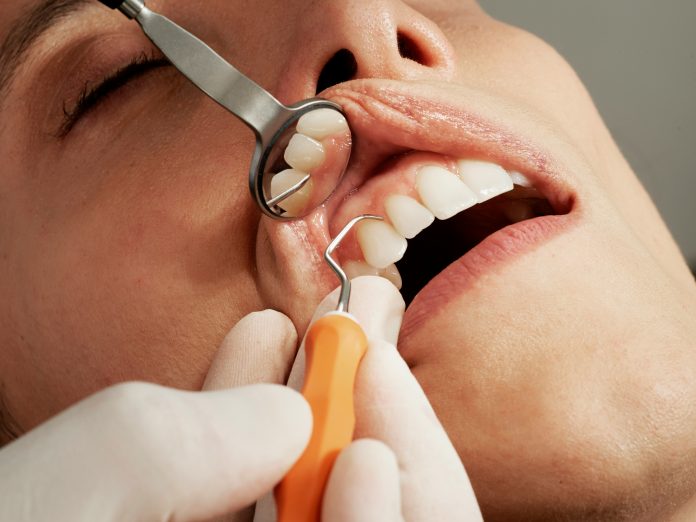The Ultimate Guide to Different Types of Dental Implants: Discover Your Perfect Smile
Explore the different types of dental implants in our comprehensive guide. Find out which dental implant is perfect for you and how it can transform your smile.
In today’s world, where a smile holds the power to break barriers and warm hearts, the significance of having a perfect one cannot be overstated. Dental implants have emerged as a revolutionary solution for those who’ve lost teeth due to various reasons, offering a semblance of hope and confidence. This article delves into the different types of dental implants, aiming to enlighten and guide you towards making an informed decision for your dental health.
Introduction to Dental Implants
Dental implants have transformed the dental industry, providing a sturdy and permanent solution for missing teeth. Unlike traditional dentures, implants offer a fixed solution that mimics natural teeth, both in function and appearance. They are surgically placed into the jawbone, serving as a robust foundation for artificial teeth.
The Evolution of Dental Implants
The journey of dental implants from their inception to the modern advancements of today is nothing short of remarkable. Initially, materials like gold and bone were experimented with, but with the advent of titanium, the game changed. Titanium’s ability to osseointegrate, or bond with the bone, made it the material of choice, setting the stage for the sophisticated implants we see today.
Understanding the Importance of Dental Implants
Losing teeth not only affects your smile but also impacts your oral health and overall well-being. Dental implants play a pivotal role in preserving jawbone health, preventing bone loss, and maintaining the integrity of facial structures. They also offer the freedom to eat, speak, and smile without hesitation, enhancing quality of life.
Different Types of Dental Implants
Endosteal Implants
The most commonly used type, endosteal implants, are directly inserted into the jawbone. They serve as an anchor for one or multiple artificial teeth, making them an ideal choice for those with a healthy jawbone.
Subperiosteal Implants
Designed for patients who do not have enough healthy jawbone and wish to avoid extensive surgery, subperiosteal implants are placed under the gum but on or above the jawbone.
Zygomatic Implants
The least common type, zygomatic implants, are an alternative for those lacking adequate jawbone for traditional implants. They are anchored in the cheekbone rather than the jawbone.
Mini Dental Implants
As the name suggests, these are smaller than traditional implants and are often used for stabilizing lower dentures.
All-on-4 Dental Implants
A revolutionary approach that allows for the placement of a full arch of teeth on just four implants. This method is especially beneficial for patients who have lost a significant amount of bone.
The Procedure of Dental Implant Surgery
Pre-Surgery Evaluation
The journey towards getting dental implants begins with a comprehensive evaluation, including dental exams, X-rays, and planning the treatment course.
The Surgery Process
Dental implant surgery is typically performed under local anesthesia. The process varies depending on the type of implant and the condition of the patient’s jawbone.
Post-Surgery Care and Recovery
Recovery may take several months, during which the implant fuses with the bone in a process known as osseointegration. Proper care and patience are crucial during this period.
Benefits of Different Dental Implants
Dental implants offer numerous benefits, including improved appearance, speech, comfort, and oral health. They are durable and, with proper care, can last a lifetime.
Potential Risks and Complications
Like any surgical procedure, dental implant surgery comes with its set of risks and complications. However, with experienced dental professionals and proper care, these can be minimized.
Caring for Your Dental Implants
Daily Care and Maintenance
Taking care of dental implants is similar to caring for natural teeth, involving regular brushing, flossing, and dental check-ups.
Professional Check-Ups and Cleanings
Regular visits to the dentist are essential to ensure the longevity of your implants and overall oral health.
Choosing the Right Type of Dental Implant for You
Selecting the appropriate type of dental implant depends on various factors, including your dental health, the amount of available bone, and your personal preferences. A consultation with a dental implant specialist is the best way to determine the right option for you.
Conclusion
Dental implants offer a beacon of hope for those looking to restore their smiles. With the advancements in dental technology, there are now various types of dental implants available to suit different needs. Understanding these options and consulting with a dental professional can lead you to the right choice for your dental health. Remember, a confident smile is within reach, and dental implants can help you achieve it.
Also Read: The Ultimate Guide to Different Types of Dental Implants: Discover Your Perfect Smile
Denticore Click Here to Buy
The Unique Dental Solution That Supports Healthy Teeth & Oxygenates Gums
Affiliate Disclosure:
The links contained in this product review may result in a small commission if you opt to purchase the product recommended at no additional cost to you. This goes towards supporting our research and editorial team and please know we only recommend high quality products.
Disclaimer:
Please understand that any advice or guidelines revealed here are not even remotely a substitute for sound medical advice from a licensed healthcare provider. Make sure to consult with a professional physician before making any purchasing decision if you use medications or have converts following the review details shared above. Individual results may vary as the statements made regarding these products have not been evaluated by the Food and Drug Administration. The efficacy of these products have not been confirmed by FDA approved research. These products are not intended to diagnose, treat, cure or prevent any disease.





